From the March 1, 1988 Chicago Reader. — J.R.
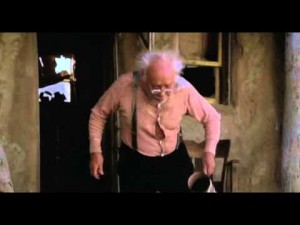
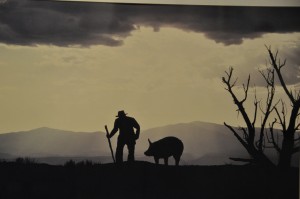
Robert Redford’s second feature as director (after Ordinary People) describes the elaborate consequences when a Chicano handyman in New Mexico (Chick Vennera) illegally irrigates his parched bean field with water earmarked for a major development. Fairly choked with good intentions, whimsy, touches of fantasy, and cardboard liberal stereotypes, this 1988 release does for Mexicans what Louis Malle did for Jews or Walt Disney did for mice — slowly, and at great length. The results are a bit like a translation of Gabriel Garcia Marquez’s magical realism by Mortimer Snerd, with pretty landscapes. John Nichols adapted his own novel, assisted by David Ward; with Ruben Blades, Richard Bradford, Sonia Braga, Julie Carmen, James Gammon, Melanie Griffith, John Heard, Carlos Riquelme, Daniel Stern, and Christopher Walken. R, 118 min. (JR)
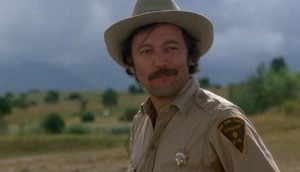
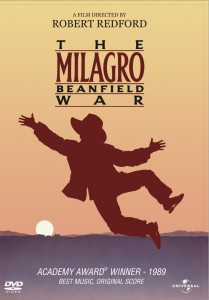 Read more
Read more
From the April 1, 1997 Chicago Reader. — J.R.
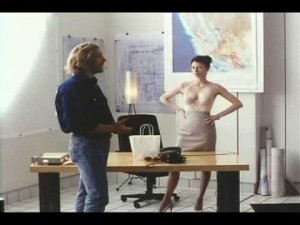
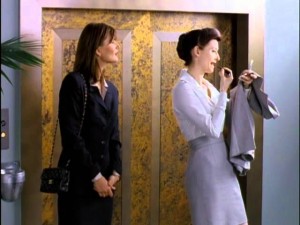
An adventurous and sometimes sexy (if only fitfully successful) 1996 adaptation of Louise Kaplan’s celebrated nonfiction book, directed by Susan Streitfeld from a script she wrote with Julie Hebert. Streitfeld focuses on a successful single prosecutor (British actress Tilda Swinton, displaying an impeccable American accent) as she waits to discover whether she’s been appointed as a judge, her kleptomaniac-scholar sister (Amy Madigan), the prosecutor’s boyfriend, a lesbian psychotherapist she has a fling with, and other people in her orbit. Oscillating between everyday events in her life and her dreams and fantasies, the film is much more successful with the former than with the latter, which often get heavy-handed and obscure. But the freshness of Streitfeld’s approach toward gender anxiety and social conditioning fascinates even when the overall clarity diminishes. Not for everyone, but those who like it will probably like it a lot. With Karen Sillas, Clancy Brown, Frances Fisher, Laila Robins, Paulina Porizkova, and Dale Shuger. (JR)

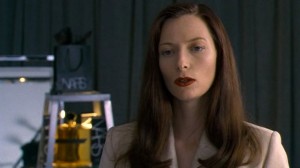
Read more
From the May 1, 1994 Chicago Reader. — J.R.

Gus Van Sant adapts Tom Robbins’s comic, countercultural novel of the 70s by boiling away half of the subplots, eliminating the interpolated essays, and upgrading the lesbian romance, and while the results are both cheerful and occasionally inventive, they can’t hold a candle to his previous features (Mala Noche, Drugstore Cowboy, My Own Private Idaho); too many jokey asides and cameos — not to mention an overdose of plot — keep getting in the way. Sissy Hankshaw (Uma Thurman) puts her abnormally large thumbs to use in hitchhiking and winds up at a ranch in Oregon among a band of renegade cowgirls. With John Hurt, Angie Dickinson, Pat Morita, Lorraine Bracco, and Rain Phoenix. (JR)
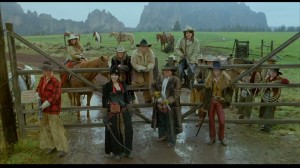 Read more
Read more
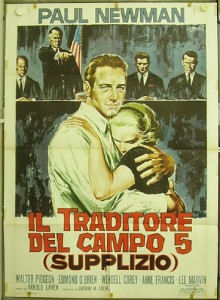
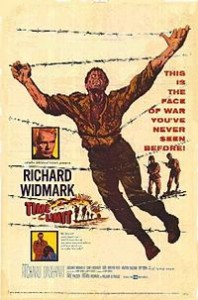
THE RACK, written by Stewart Sterm and Rod Serling, directed by Arnold Laven, with Paul Newman, Wendell Corey, Edmond O’Brien, Walter Pidgeon, Anne Francis, Lee Marvin, and Cloris Leachman (1956, 100 min.)
TIME LIMIT, written by Henry Denker and Ralph Berkey, directed by Karl Malden, with Richard Widmark, Richard Basehart, Dolores Michaels, June Lockhart, Rip Torn, Martin Balsam, Carl Benton Reid, and James Douglas (1957, 96 min.)
I’ve recently reseen these two taut black and white 50s melodramas about the impending courtmartials of American POWs in North Korea who broke under torture, including brainwashing, and became traitors–characters played respectively by Paul Newman and Richard Basehart, and interrogated by Wendell Corey and Edmond O’Brien in the first film, Richard Widmark in the second. Indeed, there are so many close similarities and parallels between these films and their existential issues that I’ve often mixed them up in my memory, although it’s now clear after reseeing them that Time Limit, the only film ever directed by Karl Malden, is by far the better of the two. The Rack is adapted by Stewart Stern from a 1955 TV drama by Rod Serling that aired on the United States Steel Hour; Time Limit is adapted by Henry Denkler from a 1956 play that he coauthored with Ralph Berkey. Read more
From the February 1, 1989 Chicago Reader. — J.R.
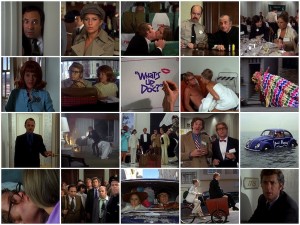
Peter Bogdanovich’s bright 1972 screwball comedy, patterned after Bringing Up Baby and decked out with lots of references to silent slapstick, plants dim musicologist Ryan O’Neal and freewheeling kook Barbra Streisand in San Francisco and then piles on the comic complications, with assistance from Madeline Kahn, Austin Pendleton, John Hillerman, Randy Quaid, and Kenneth Mars. Much of the slapstick is deftly executed, but there is one unfortunate undertone — ordinary, unassuming workers tend to be the fall guys more often than the pompous rich (a factor that distinguishes this comedy from most of Bogdanovich’s classic sources), although O’Neal’s character, who stays at the Hilton, certainly has his share of pratfalls. Streisand sings a fabulous version of “You’re the Top” behind the credits, and the busy script by Buck Henry, Robert Benton, and David Newman keeps things moving, but the spirit of pastiche keeps this romp from truly rivaling its sources. G, 94 min. (JR)
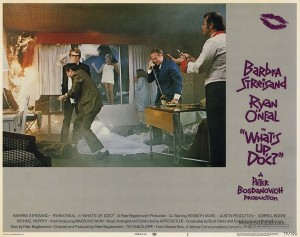 Read more
Read more
From the Chicago Reader (May 1, 1988). — J.R.
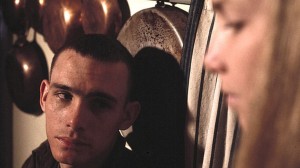
On the evidence of Elia Kazan’s recent autobiography, it is this low-budget, independent feature of 1972, shot in super-16-millimeter, that comprises his true last (or at least last personal) film, rather than The Last Tycoon, which he embarked on mainly for the money four years later. Scripted by Kazan’s son Chris and shot in and around their Connecticut homes, the film offers some disturbing yet relevant echoes of themes in other Kazan pictures: the pacifist who finds himself driven to violence and the hatred-provoked hero who squeals on his buddies (reflecting Kazan’s naming of names to the HUAC in the early 50s). Two Vietnam vets released from Leavenworth after serving time for the rape and murder of a Vietnamese woman go to visit the former buddy who turned them in, who is now living with his girlfriend and their young son in the home of her father, a macho, alcoholic novelist. There’s a lot of prolonged waiting around while the two convicts circle their prey and prepare their revenge. While Kazan makes the most of the ambiguous personalities involved — he is especially good with his James Dean-ish discovery Steve Railsback, as well as with an early James Woods performance — the abrasive sexism of the overall conception, which recalls Peckinpah’s Straw Dogs in spots, makes this the most unpleasant of all his films. Read more
From the Chicago Reader (April 1, 1988). — J.R.
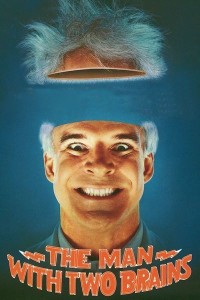
This 1983 Steve Martin vehicle may be a little slapdash here and there as filmmaking, but it probably has more laughs than any other Martin comedy (with the possible exception of The Jerk). Martin plays a brain surgeon who contrives to resurrect his bitchy, beautiful late wife (Kathleen Turner) with the transplanted brain of a gentler soul. Far from avoiding the tackier implications of this concept, the film revels in them like a puppy in clover; Martin’s delivery of the line, “Into the mud, scum queen!” is alone nearly worth the price of admission. With David Warner; directed by Carl Reiner. (JR)

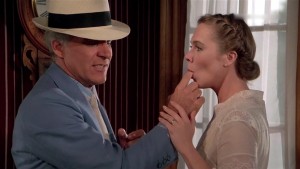
Read more
From the Chicago Reader (April 1, 1988). — J.R.
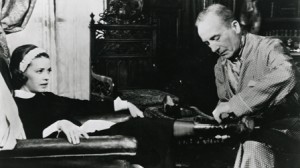
Oddly enough, Jean Renoir’s 1946 Hollywood version of Octave Mirbeau’s novel was a lot crueler and more “Buñuel-esque” than this, Buñuel’s own remarkable and neglected 1964 French version. It was the first of his many fruitful collaborations with screenwriter Jean-Claude Carriere and producer Serge Silberman, and, if I’m not mistaken, his only encounter with ‘Scope (in black and white). Formally and thematically, this is one of Buñuel’s subtlest and most intriguing late works; the novel’s action is updated to the 30s and includes a commentary on the French fascism of the period. Jeanne Moreau plays the heroine, and others in the cast include Michel Piccoli, Georges Geret, and Francoise Lugagne. The absence of a musical score makes Buñuel’s use of sound especially beguiling. In French with subtitles. 101 min. (JR)
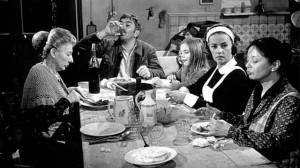
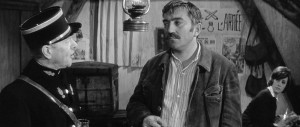 Read more
Read more
From the Chicago Reader (November 1, 1988). — J.R.
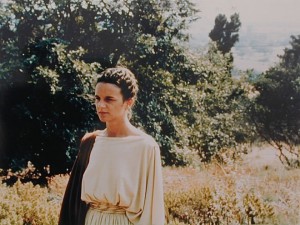
The tenth and latest feature of European avant-garde filmmakers Jean-Marie Straub and Daniele Huillet — filmed in Sicily and using as its text the first of three versions of Friedrich Holderlin’s unfinished 1798 verse tragedy — is one of their most beautiful works; but like all the best avant-garde work, watching and listening to it requires some adjustments in our usual activity as spectators — adjustments that involve new areas of play as well as work. This is a film in which sound matters at least as much as image, and where the lovely natural settings (filmed in 35-millimeter by Renato Berta) are as important as the actors and the text. The sound of Holderlin’s highly metered German blank verse is the most sensually rich use of that language that I have ever heard, and even if, like me, you don’t understand the language, the selective subtitles should be regarded as footnotes to glance at rather than as a substitute for the main text. Unlike the texts in Straub and Huillet’s early work, the text here is dramatically and expressively acted, and the compelling cast includes Andreas von Rauch as Empedocles (a Greek philosopher expelled from his community for blasphemy, and bent on suicide), Howard Vernon (who acted in Fritz Lang’s The Thousand Eyes of Dr. Read more
From the Chicago Reader (January 1, 1990). — J.R.
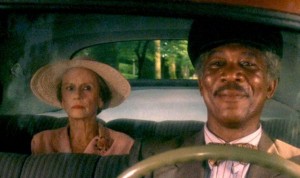
Alfred Uhry adapts his own play about the relationship between a crotchety, elderly Jewish woman living in Atlanta (Jessica Tandy) and the slightly younger black man (Morgan Freeman) hired by her businessman son (Dan Aykroyd) to drive her around (1990, 99 min.). Uhry’s play, which won a Pulitzer Prize, is a sentimental actors’ vehicle so fundamentally theatrical in conception that nothing can really make it into a film; aided by a lachrymose Hans Zimmer score, it fairly drips with the kind of nostalgic liberal platitudes that make its upscale target audience applaud at the end — they’re actually applauding themselves. Fortunately, the three actors manage to get a lot of mileage out of the material: although one never quite believes that Tandy’s character is Jewish, she is remarkable in every other respect, and Freeman and Aykroyd are wonderful throughout. The movie also has something legitimate and instructive to say about the subtlety and intricacy of everyday race relations in the South during the period covered (roughly 1948 to ’73). The self-conscious period decor by Bruno Rubeo is never quite convincing — Atlanta is never made to seem like a large city — and the mise en scene of director Bruce Beresford basically consists of letting the actors do their utmost. Read more
From the Chicago Reader (November 1, 1988.) — J.R.
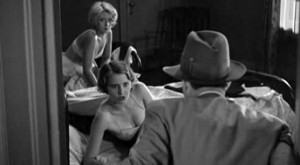
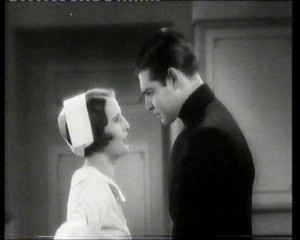

A William Wellman curiosity done for Warners in 1931, this gritty thriller, a favorite of film critic Manny Farber, is of principal interest today for its juicy early performances by Barbara Stanwyck, Joan Blondell, and Clark Gable. Hard as nails, with lots of spunk. 72 min. (JR)
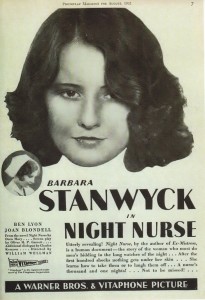
Read more
From the October 1, 1989 Chicago Reader. — J.R.
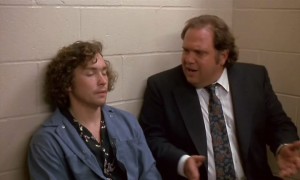
An aging burglar (Burt Reynolds) takes on and trains a younger partner (Casey Siemaszko) in a quirky and likable 1989 comedy directed by Bill Forsyth and scripted by John Sayles. This film lacks the ambition of Forsyth’s earlier Housekeeping, but it’s warm, engaging, and very agreeably acted (Reynolds hadn’t been this good in ages); most of the focus is on the warmth that develops between the old pro and his student in crimea little bit like the rapport between older and younger men found in some of the movies of Howard Hawksand Sayles’s refreshingly nonjudgmental script has plenty of small-scale pleasures of its own. With Sheila Kelley, Lorraine Toussaint, and Albert Salmi. (JR)
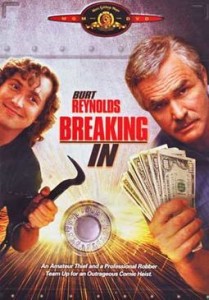 Read more
Read more
From the Chicago Reader (May 1, 1989). I can happily report that this expertly realized tour de force — a brilliant adaptation of what is essentially highly theatrical material, rehearsed and blocked to the nines — is now out on a Twilight Time Blu-Ray. For all its nervy desire to wear its sordidness, black comedy, and sheer roughness on its sleeve, which kept it from having a commercial success in the 70s and may still alienate some viewers now, this is basically a comedy about sexual vulnerability and shifting power plays between jaded Hollywood types with more bark than bite, and a surprisingly sweet aftertaste shining through all the harsh pseudo-toughness. — J.R.
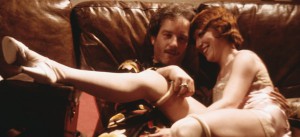
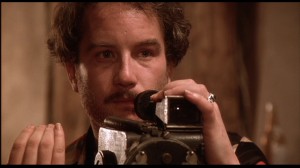
John Byrum’s controversial first feature, made in 1976, stars Richard Dreyfuss as a burned-out Hollywood genius director of the 20s, reduced in the 30s to making porn films in his own mansion. Wittily scripted and engagingly acted (by Dreyfuss, Jessica Harper, Veronica Cartwright, and Bob Hoskins), the film restricts all its action to a few hours in the director’s mansion, and is peppered liberally with inside movie references. Chances are you’ll either be bored stiff by the conceits or exhilarated; personally, I found it gripping throughout. (JR)
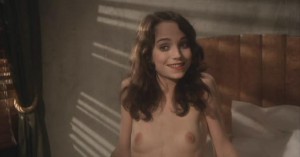
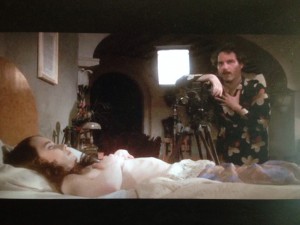 Read more
Read more
From the Chicago Reader (July 1, 1989). — J.R.
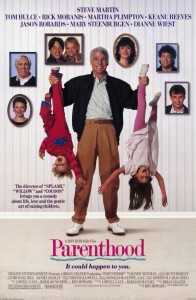
This movie has its share of laughs, but it’s also Ron Howard’s most personal film, and clearly his most ambitious — a multifaceted essay in fictional form about the diverse snares of child rearing. The movie tries for so many things in so many different registers — there are a number of fantasy interludes and raunchy gags along with an overflowing cast of characters (including Steve Martin, Tom Hulce, Rick Moranis, Martha Plimpton, Keanu Reeves, Jason Robards, Mary Steenburgen, and Dianne Wiest) — that the results are often unwieldy, but they’re certainly heartfelt: Howard’s grown-up sentimentality is the perfect antidote to the infantilism of Spielberg and Lucas and their disciples. The film never shies away from real problems, and the complex mix of comedy and seriousness in its treatment of the pitfalls of parenthood steadily grows in feeling and power. The movie may wind up being as messy as it argues that family life is, but it commands admiration and respect. The screenplay is by Lowell Ganz and Babaloo Mandel, based on a story that they wrote with Howard (1989). (JR)
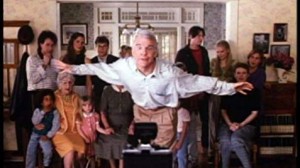 Read more
Read more
From the Chicago Reader (July 1, 1989). — J.R.
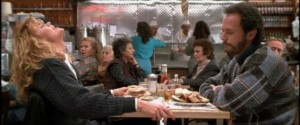
Fans of Billy Crystal’s amphibian qualities may be amused, but the rest of us have to contend with a slavish Woody Allen imitation in this New York comedy scripted by Nora Ephron and directed by Rob Reiner (1989). Everything from the background music to the jogging dialogue strains to create the atmosphere of an Annie Hall or a Manhattan, with Meg Ryan in the Diane Keaton part, Carrie Fisher and Bruno Kirby as the best friends/other couple, and half a dozen elderly New York couples periodically discoursing cutely about how they met. The title couple meet on a drive from the University of Chicago to Manhattan in 1977, and the movie charts their gradual and grudging bonding up to the present. Very slickly and glibly put together, with a sharp eye for yuppie decor and accoutrements; even Woody’s habitual, fanciful vision of an all-white New York is respected. 95 min. (JR)
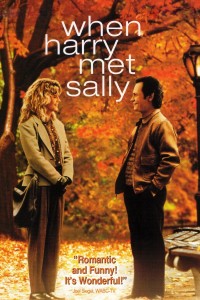 Read more
Read more





































